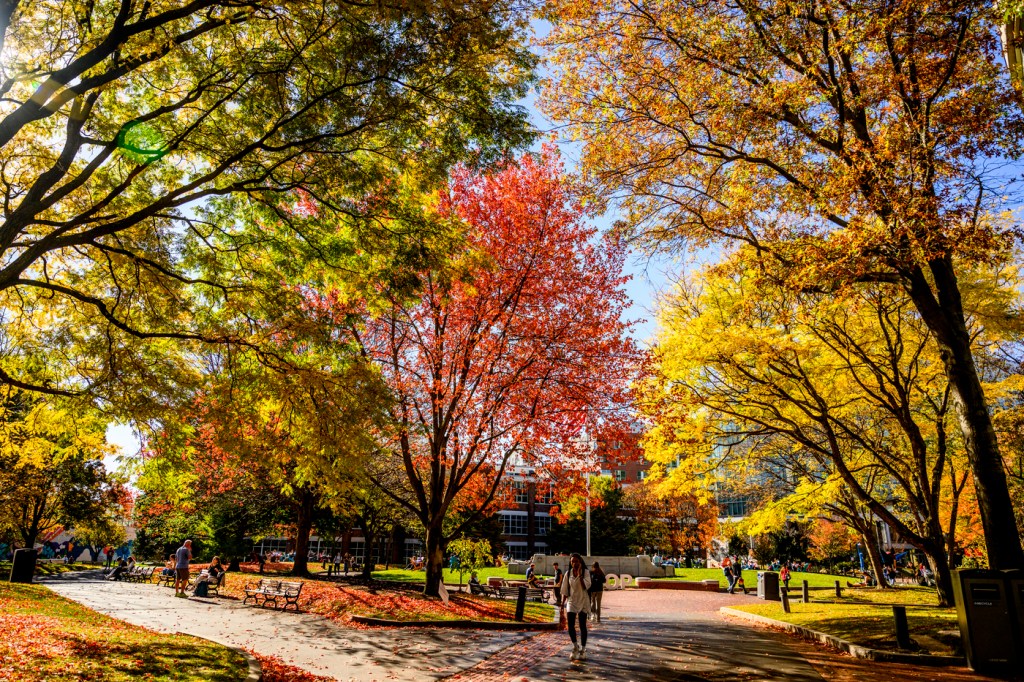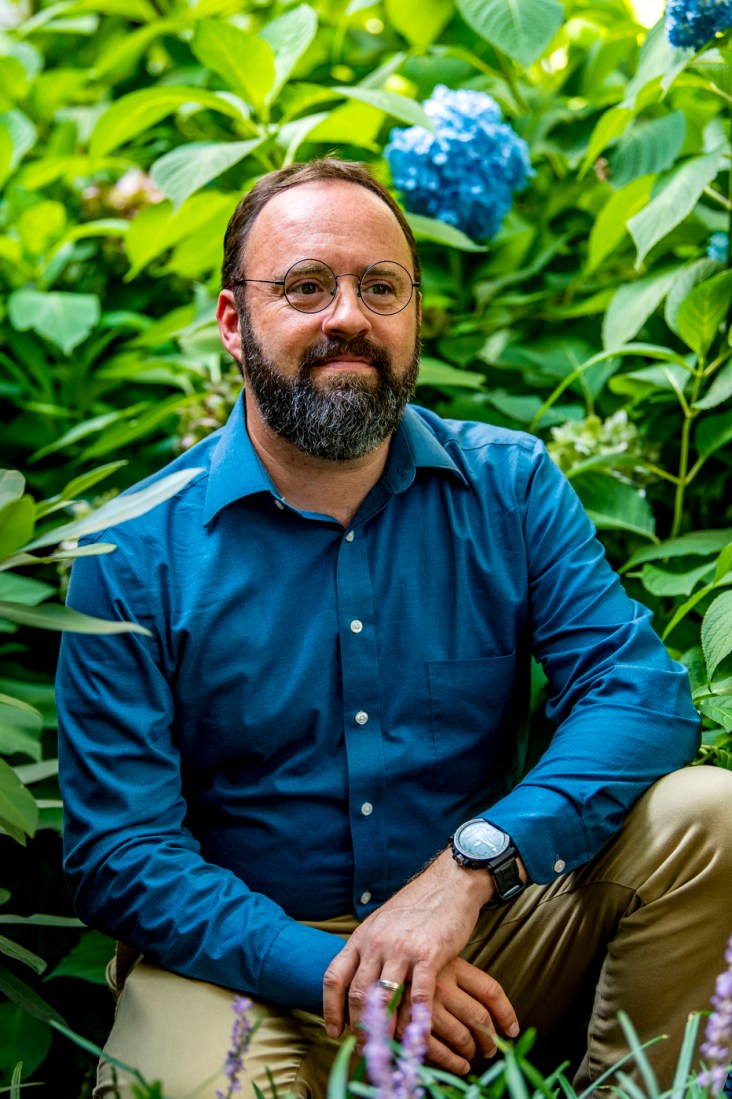Northeastern honored with a Green Star landscaping award for exceptional urban grounds maintenance
The Professional Grounds Management Society recognized Northeastern’s team for exceptional maintenance of the Boston campus.

Northeastern University’s arboretum, landscaping and grounds team recently received an Honor Award from Professional Grounds Management Society for exceptional grounds maintenance of the Boston campus.
“We’re honored and happy to be recognized for the work that’s being done,” says Stephen Schneider, director of horticulture and grounds at Northeastern. “It’s a big deal and a good morale booster. But it’s not just the praise that we’re looking for, we’re really looking to set higher standards for our urban landscape.”
What is the PGMS?
The Professional Grounds Management Society is a society of grounds professionals from the U.S. and Canada, working both for public and private organizations including colleges, municipalities, hospitals, hotels and apartment complexes, as well as independent landscape contractors, students, educators and suppliers.

Northeastern’s Boston campus was recognized in the Urban University Grounds category of the society’s 2024 Green Star Awards.
What the judges said
Judges commended Northeastern’s interesting, clean and well-maintained landscape designs, use of texture and diversity of plantings, use of native plants and reduced pesticides use. They praised the use of fall colors to extend the landscape’s beauty without relying on flowers.
“You obviously care for the large, mature canopy trees whose shade is critical within the open spaces,” one judge noted. ”Your use of native plants and the arboretum, and gardens aspect of campus are commended.”
Mission of the department
Since the Boston campus received an arboretum status in 2019, the mission of the grounds department, Schneider says, has been developing and maintaining its botanical collection and an urban wildlife habitat, as well as providing students, faculty, staff and visitors with an attractive environment for learning and enjoyment.
“Our style of landscape tends to have a very naturalistic look and feel,” Schneider says. “In a densely urban space, it is very difficult to maintain that look and that feel when you have all of these urban pressures essentially working against you.”
What are the unique challenges?
Northeastern’s dense urban environment, with its many buildings and limited green space, Schneider says, poses unique challenges. But he aims to create an urban habitat for diverse flora and fauna while mitigating the heat island effect, as urban areas get significantly warmer than surrounding rural areas.
“I am more of someone who is interested in the natural world and bringing the natural world into urban spaces, making something very unnatural feel natural,” he says. “It’s difficult to achieve but with knowledge and practice you can get there.”
Who is on the team?
Northeastern, Schneider says, has a fantastic team of landscapers, horticulturists, arborists, plant recorders, supervisors and managers.
“We want to have the campus look amazing, and we want to have color, and we want to have texture, but it’s the kinds of plants that we’re choosing now to bring in that is also building habitat and inviting pollinators and different fauna to not only come visit, but to actually make their home here,” he says.
What was the application process?
This was Northeastern’s first application for the Green Star competition, spearheaded by Jonathan Bacdayan, a part-time arboretum records assistant and former co-op student.
Bacdayan, now a graduate student in environmental science and policy, initiated the application process, which included a detailed questionnaire and a PowerPoint presentation.
“It’s a ton of work just gathering all this information,” Schneider says. “Without him, without his gumption we wouldn’t have qualified for the award.”
